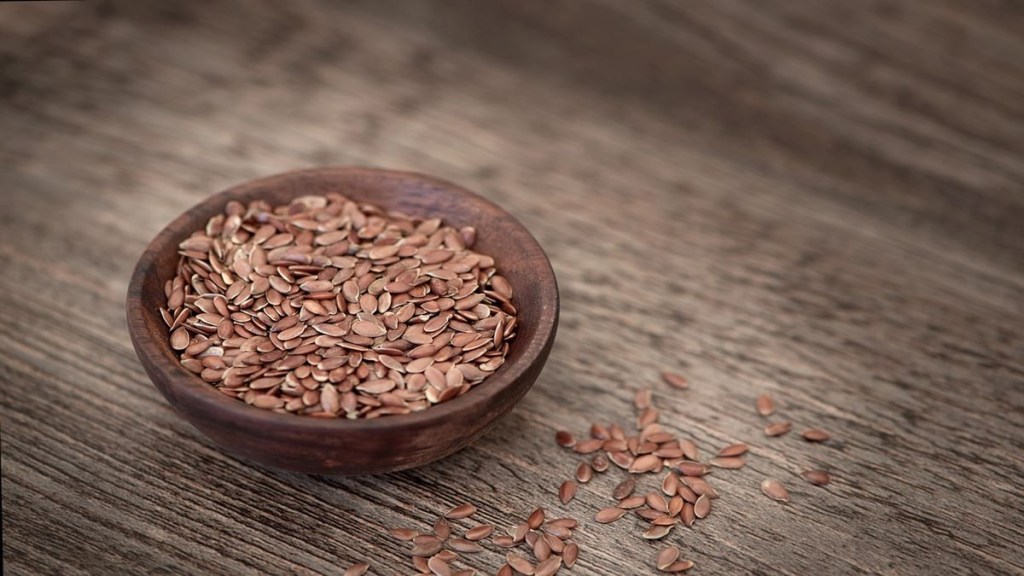Flaxseed, a plant-based food, is a well-known source of healthy fats, antioxidants and fibre. Flaxseeds have a mild, nutty flavour and crispy consistency and they enhance the taste of almost any recipe.
Studies suggest that one serving provides a good amount of protein, fiber, and omega-3 fatty acids, along with several important vitamins and minerals. Meanwhile, Flaxseed is an excellent source of alpha-linolenic acid (ALA), a type of omega-3 fatty acid that’s important for heart health.
“Flaxseed use may have some benefits in improving the lipid profile in those who are obese with high cholesterol. A dose of <30 g/d of whole seeds is usually considered effective, but is not recommended by any clinical societies worldwide. Similarly, the benefits of flaxseeds on constipation, lowering of blood sugar and improving heart health are based on weak evidence which requires further studies with large-scale and better designs for effective confirmation,” Dr. Cyriac Abby Philips, a senior consultant and physician-scientist in the Department of Hepatology at the Liver Institute, Rajagiri Hospital, Aluva, in Kerala told Financial Express.com.
What are the benefits of flaxseeds?
Flaxseeds comprises the following benefits:
- Flaxseed is rich in ALA, a type of omega-3 fatty acid that may offer numerous benefits for heart health.
- It contains nutrients called lignans that may help decrease cancer growth.
- Flaxseed may help promote regular bowel movements and improve digestive health.
- Flaxseed’s high fiber content may help lower cholesterol levels
- It may be especially useful for those with high blood pressure
- Flaxseed may lower blood sugar due to its soluble fiber content.
- Flaxseed may help you feel full for longer and this will help in weight management.
What are the side effects of flaxseeds?
According to Dr. Philips, raw or unripe flaxseeds contain potentially toxic natural plant compounds and must be avoided.
“Flaxseeds use in pregnancy and lactation is not recommended and flaxseed consumption in large quantities is not advisable because it has a very high fibre content, which can cause intestinal blockage in very rare cases,” he told Financial Express.com.
Here are some side-effects of flaxseeds:
- It can cause allergic reactions.
- Flaxseeds can worsen inflammation in the body.
- Overconsumption of flaxseeds can increase the number of bowel movements.
- You may also experience stomach ache, diarrhea, constipation, and bloating after eating excess Flaxseeds.
How much flaxseeds you should eat in a day?
According to health experts, major benefits can be observed with just 1 tablespoon (7 grams) of ground flaxseed per day. However, it is recommended to limit the intake to around 4–5 tablespoons (28–35 grams) of flaxseed per day.








